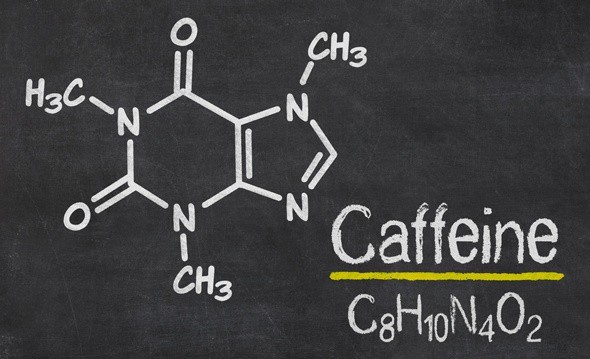Caffeine
- Join millions of viewers watching the best in live streaming entertainment on Caffeine! Discover exclusive live, interactive content produced in partnership with Ultimate Rap League, BattleFest, Memphis Jookin, T Squad and more — all for free on desktop and mobile devices. Enjoy free access to premium live events, daily live streams about everything from battle rap to street dance to Among.
- Nov 27, 2020 Along with its needed effects, caffeine may cause some unwanted effects. Although not all of these side effects may occur, if they do occur they may need medical attention. Check with your doctor immediately if any of the following side effects occur while taking caffeine: More common. Feeding intolerance; Less common. Agitation; black, tarry.
- Caffeine has well-known short-term stimulating effects on central nervous system, but the long-term impacts on cognition have been less clear. Dementia and Alzheimer's disease (AD) are rapidly increasing public health problems in ageing populations and at the moment curative treatment is lacking.
🔥 Live streams you’ll want to watch. A chat you’ll never want to leave. Mar 30, 2021 Caffeine is a stimulant that increases alertness and enhances concentration in consumers. However, regular ingestion of the drug alters the brain’s chemical makeup, and can cause fatigue, headaches, and nausea when attempting to quit.
Using Caffeine is very simple. There's a coffee maker icon on the taskbar, and all you have to do is double-click to activate or deactivate it. When the coffee maker is full, the application is activated. When the coffee maker is empty, it's deactivated. It's that simple.
Caffeine is an application that's especially useful for anyone who has trouble with Windows sleep mode. Now, with this application, your computer will never sleep or turn on its screensaver automatically.
Learn More
Research

For You
What is caffeine?
Caffeine is a bitter substance that occurs naturally in more than 60 plants including
- Coffee beans
- Tea leaves
- Kola nuts, which are used to flavor soft drink colas
- Cacao pods, which are used to make chocolate products
There is also synthetic (man-made) caffeine, which is added to some medicines, foods, and drinks. For example, some pain relievers, cold medicines, and over-the-counter medicines for alertness contain synthetic caffeine. So do energy drinks and 'energy-boosting' gums and snacks.
Most people consume caffeine from drinks. The amounts of caffeine in different drinks can vary a lot, but it is generally
- An 8-ounce cup of coffee: 95-200 mg
- A 12-ounce can of cola: 35-45 mg
- An 8-ounce energy drink: 70-100 mg
- An 8-ounce cup of tea: 14-60 mg

What are caffeine's effects on the body?

Caffeine has many effects on your body's metabolism. It
- Stimulates your central nervous system, which can make you feel more awake and give you a boost of energy
- Is a diuretic, meaning that it helps your body get rid of extra salt and water by urinating more
- Increases the release of acid in your stomach, sometimes leading to an upset stomach or heartburn
- May interfere with the absorption of calcium in the body
- Increases your blood pressure
Within one hour of eating or drinking caffeine, it reaches its peak level in your blood. You may continue to feel the effects of caffeine for four to six hours.
What are the side effects from too much caffeine?
For most people, it is not harmful to consume up to 400mg of caffeine a day. If you do eat or drink too much caffeine, it can cause health problems, such as

- Restlessness and shakiness
- Rapid or abnormal heart rhythm
- Dependency, so you need to take more of it to get the same results
Some people are more sensitive to the effects of caffeine than others.
What are energy drinks, and why can they be a problem?
Energy drinks are beverages that have added caffeine. The amount of caffeine in energy drinks can vary widely, and sometimes the labels on the drinks do not give you the actual amount of caffeine in them. Energy drinks may also contain sugars, vitamins, herbs, and supplements.
Companies that make energy drinks claim that the drinks can increase alertness and improve physical and mental performance. This has helped make the drinks popular with American teens and young adults. There's limited data showing that energy drinks might temporarily improve alertness and physical endurance. There is not enough evidence to show that they enhance strength or power. But what we do know is that energy drinks can be dangerous because they have large amounts of caffeine. And since they have lots of sugar, they can contribute to weight gain and worsen diabetes.
Sometimes young people mix their energy drinks with alcohol. It is dangerous to combine alcohol and caffeine. Caffeine can interfere with your ability to recognize how drunk you are, which can lead you to drink more. This also makes you more likely to make bad decisions.
Who should avoid or limit caffeine?
You should check with your health care provider about whether you should limit or avoid caffeine if you
- Are pregnant, since caffeine passes through the placenta to your baby
- Are breastfeeding, since a small amount of caffeine that you consume is passed along to your baby
- Have sleep disorders, including insomnia
- Have migraines or other chronic headaches
- Have anxiety
- Have GERD or ulcers
- Have fast or irregular heart rhythms
- Have high blood pressure
- Take certain medicines or supplements, including stimulants, certain antibiotics, asthma medicines, and heart medicines. Check with your health care provider about whether there might be interactions between caffeine and any medicines and supplements that you take.
- Are a child or teen. Neither should have as much caffeine as adults. Children can be especially sensitive to the effects of caffeine.
What is caffeine withdrawal?
If you have been consuming caffeine on a regular basis and then suddenly stop, you may have caffeine withdrawal. Symptoms can include
- Headaches
- Drowsiness
- Irritability
- Nausea
- Difficulty concentrating
These symptoms usually go away after a couple of days.
- Caffeine: How Much Is Too Much? (Mayo Foundation for Medical Education and Research) Also in Spanish
- Nutrition and Healthy Eating: Caffeine (Mayo Foundation for Medical Education and Research) Also in Spanish
- Spilling the Beans: How Much Caffeine is Too Much? (Food and Drug Administration) Also in Spanish
- Tired or Wired? Caffeine and Your Brain (National Institutes of Health) Also in Spanish
- Benefits of Java (Academy of Nutrition and Dietetics)
- Caffeine and Alcohol (Centers for Disease Control and Prevention)
- Caffeine and Migraine (American Migraine Foundation)
- Caffeine: Can It Help Me Lose Weight? (Mayo Foundation for Medical Education and Research) Also in Spanish
- Caffeine: How Does It Affect Blood Pressure? (Mayo Foundation for Medical Education and Research) Also in Spanish
- Energy Drinks (National Center for Complementary and Integrative Health)
- Truth About Energy Drinks (American Academy of Family Physicians) Also in Spanish
- Update on Emergency Department Visits Involving Energy Drinks: A Continuing Public Health Concern (Substance Abuse and Mental Health Services Administration)
- ClinicalTrials.gov: Caffeine (National Institutes of Health)
Journal Articles References and abstracts from MEDLINE/PubMed (National Library of Medicine)
- Article: Caffeine ingestion improves specific artistic swimming tasks.
- Article: Acute Effects of Caffeine Intake on Psychological Responses and High-Intensity Exercise...
- Article: Spatial analysis of metformin use compared with nicotine and caffeine consumption...
- Caffeine -- see more articles
- National Institute of Environmental Health Sciences Also in Spanish
- Caffeine and Your Child (Nemours Foundation) Also in Spanish
- Caffeine Confusion (Nemours Foundation)
Caffeine App
- Caffeine in Pregnancy (March of Dimes Birth Defects Foundation) Also in Spanish
Caffeine+tv
- Caffeine in the diet (Medical Encyclopedia) Also in Spanish
- Caffeine overdose (Medical Encyclopedia) Also in Spanish
